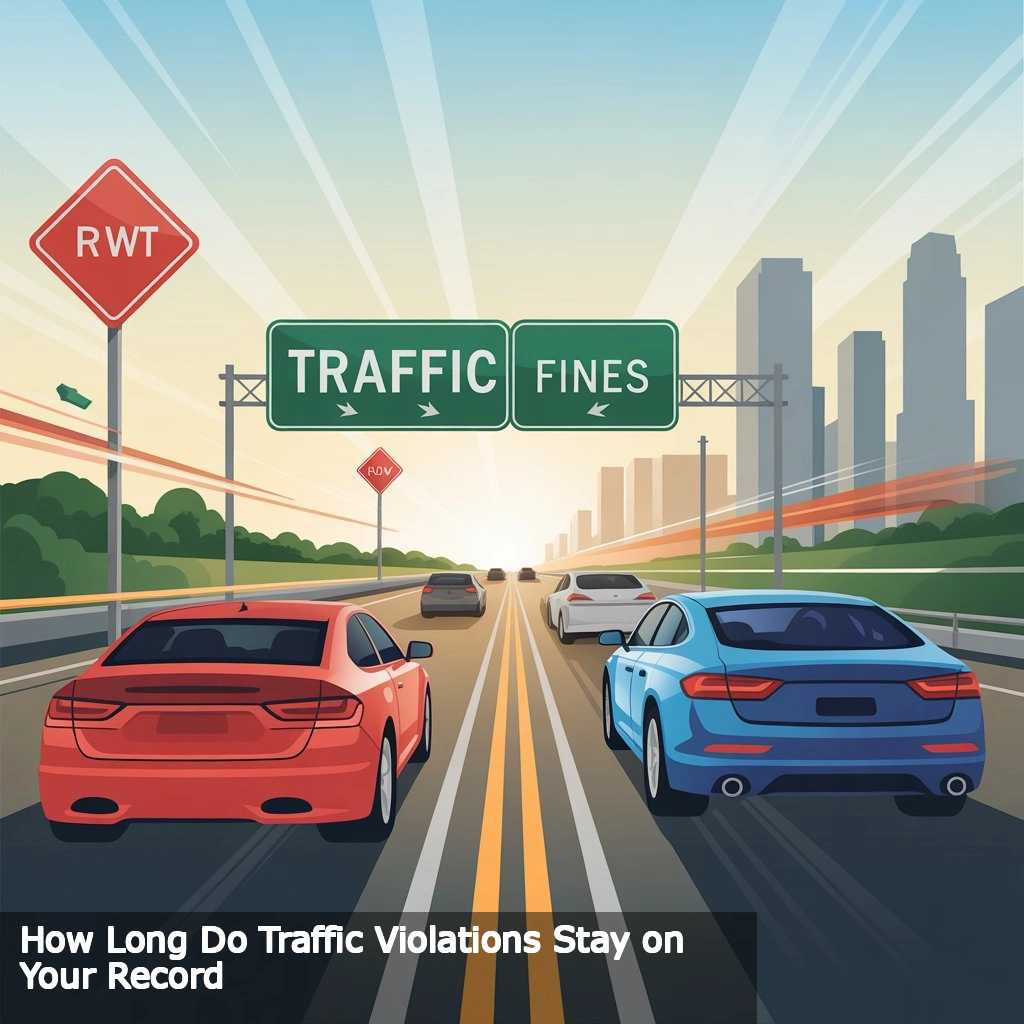How Long Do Traffic Violations Stay on Your Record
Find out how long traffic violations stay on your record in the U.S. Learn how they affect insurance, points, and what you can do to remove them.

How Long Do Traffic Violations Stay on Your Record
Every driver in the U.S. makes mistakes — a speeding ticket here, a rolling stop there — but what happens after you get caught? One of the most common questions drivers ask is: “How long do traffic violations stay on your record?” The answer depends on several factors, including the state you live in, the type of violation, and how severe it is. Understanding how long these violations remain visible on your driving record can help you protect your license, insurance rates, and driving reputation.
What Is a Traffic Violation Record?
A traffic violation record is part of your driving history maintained by your state’s Department of Motor Vehicles (DMV). This record includes any moving violations, such as speeding or running a red light, and non-moving violations, like parking tickets. Insurance companies, employers, and law enforcement agencies can access this record to assess your driving behavior and reliability.
How Long Do Traffic Violations Stay on Your Record?
In most U.S. states, traffic violations stay on your record for 3 to 5 years. However, serious offenses can remain much longer — even permanently in some cases. Here’s a general breakdown:
-
Minor traffic violations (like speeding 5–10 mph over the limit): typically stay on your record for 3 years.
-
Major violations (like reckless driving or DUI): can stay on your record for 10 years or more.
-
Commercial driver’s license (CDL) violations: often remain longer due to stricter federal regulations.
For example:
-
In California, most minor violations stay for 3 years, while a DUI remains for 10 years.
-
In Florida, speeding tickets typically last 5 years on record.
-
In New York, most moving violations stay for 18 months, but serious offenses can last years.
Why Do States Keep Traffic Violations on Record?
Each state uses driving records to promote road safety and accountability. The longer a violation stays on your record, the more it impacts your driving privileges. The DMV monitors these records to determine when to:
-
Suspend or revoke your license due to too many points.
-
Increase insurance premiums based on risk level.
-
Require driver improvement programs for habitual offenders.
The Role of the DMV Point System
Most states use a point system to track traffic violations. Each type of violation adds a specific number of points to your driving record:
-
Speeding: 2–3 points
-
Reckless driving: 4–6 points
-
DUI: 8–10 points
If you accumulate too many points within a certain period (often 12 months), your license may be suspended. Once the violation ages off your record, those points usually disappear as well.
How to Remove or Reduce Violations on Your Record
If you’re wondering how to shorten the time that traffic violations stay on your record, here are some options:
-
Take a defensive driving course. Many states allow you to remove points or dismiss a ticket if you complete a state-approved traffic school.
-
Request expungement. Some states let you petition to remove old violations after a certain time.
-
Dispute incorrect violations. Errors happen — if a ticket was added by mistake, contact your DMV to challenge it.
-
Drive responsibly. Avoiding new violations helps rebuild a clean record faster.
How Traffic Violations Affect Insurance
One of the biggest consequences of having a traffic violation on your record is higher insurance rates. Insurance companies check your driving history regularly to determine how risky you are to insure. Even a single ticket can increase premiums by 10–20%. However, the good news is that rates usually drop back down once the violation expires from your record.
Severe Violations That Stay Longer
Certain violations carry more weight and can remain visible longer than others, such as:
-
Driving Under the Influence (DUI/DWI)
-
Reckless Driving
-
Hit and Run
-
Driving with a Suspended License
In some states, these offenses are considered criminal, meaning they may appear on both your driving and criminal record indefinitely.
FAQs About Traffic Violations and Records
1. Do parking tickets show up on my driving record?
Usually not. Parking tickets are non-moving violations and typically don’t affect your driving record or insurance rates, though unpaid ones can lead to registration holds.
2. Can employers see my traffic violations?
Yes, if they conduct a background check that includes your driving history — especially for jobs involving driving.
3. Will my insurance company know if I get a ticket?
Yes. Most insurance providers review DMV records during policy renewals and adjust premiums accordingly.
4. Can I clear my driving record completely?
Not instantly. However, after violations age off or you complete approved courses, your record can eventually return to a clean status.
Conclusion
So, how long do traffic violations stay on your record? In most cases, expect them to last three to five years, but serious offenses can stick around far longer. Knowing how your record works helps you make smarter decisions — both on the road and financially. Always drive responsibly, check your DMV record regularly, and take action early to minimize long-term effects.